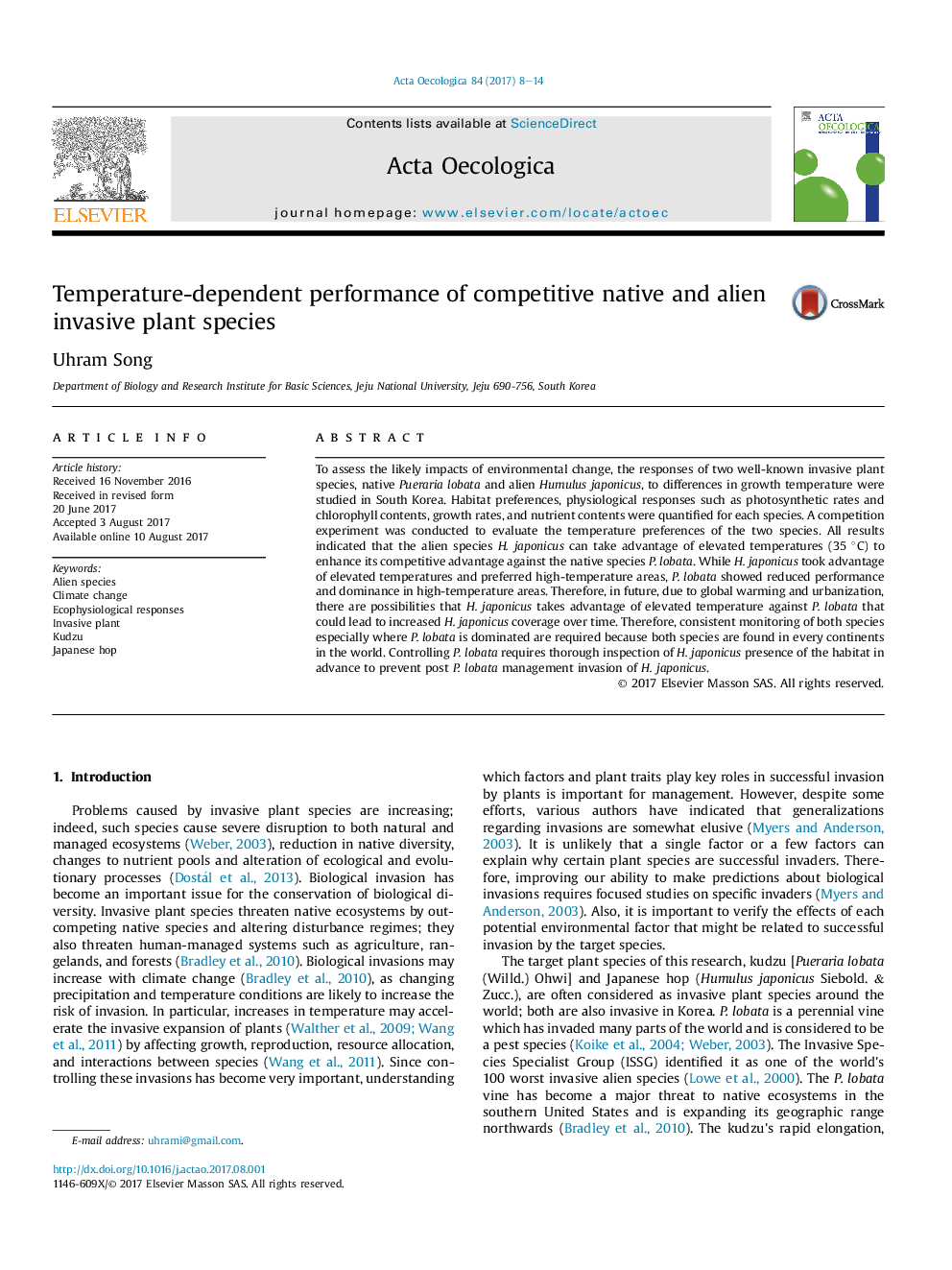| Article ID | Journal | Published Year | Pages | File Type |
|---|---|---|---|---|
| 5742489 | Acta Oecologica | 2017 | 7 Pages |
â¢Performance of competitive native and alien invasive plant species were studied.â¢Native Pueraria lobata species showed reduced performance in elevated temperature.â¢Alien Humulus japonicus species showed better performance in elevated temperature.â¢H. japonicus might replace P. lobata around the world by future global change.
To assess the likely impacts of environmental change, the responses of two well-known invasive plant species, native Pueraria lobata and alien Humulus japonicus, to differences in growth temperature were studied in South Korea. Habitat preferences, physiological responses such as photosynthetic rates and chlorophyll contents, growth rates, and nutrient contents were quantified for each species. A competition experiment was conducted to evaluate the temperature preferences of the two species. All results indicated that the alien species H. japonicus can take advantage of elevated temperatures (35 °C) to enhance its competitive advantage against the native species P. lobata. While H. japonicus took advantage of elevated temperatures and preferred high-temperature areas, P. lobata showed reduced performance and dominance in high-temperature areas. Therefore, in future, due to global warming and urbanization, there are possibilities that H. japonicus takes advantage of elevated temperature against P. lobata that could lead to increased H. japonicus coverage over time. Therefore, consistent monitoring of both species especially where P. lobata is dominated are required because both species are found in every continents in the world. Controlling P. lobata requires thorough inspection of H. japonicus presence of the habitat in advance to prevent post P. lobata management invasion of H. japonicus.
